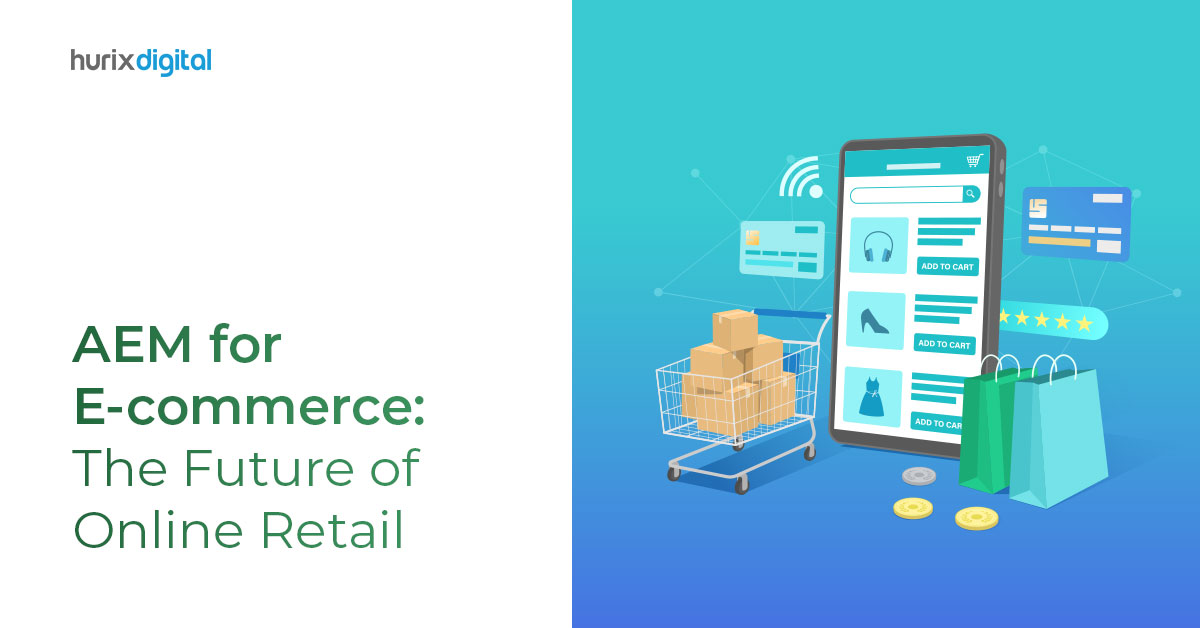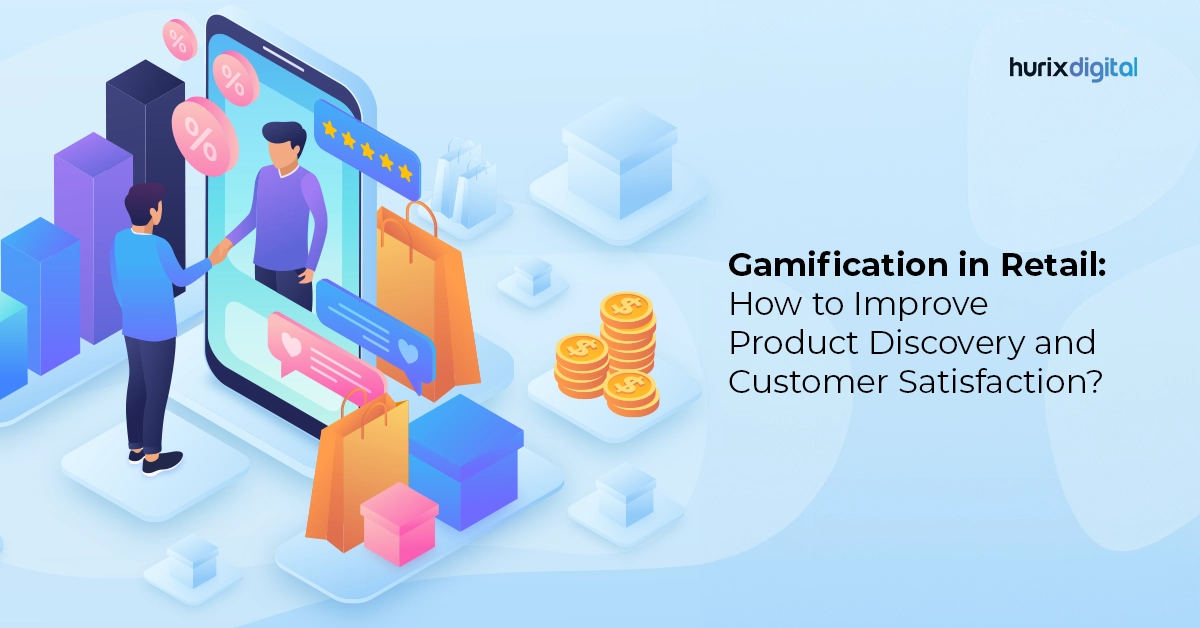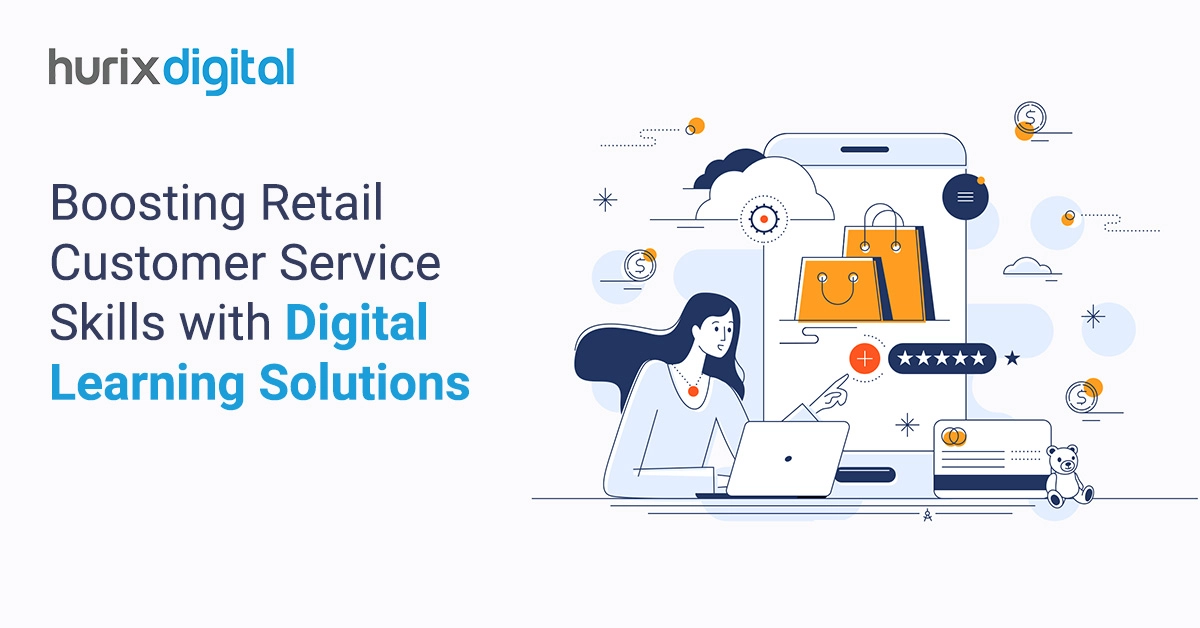
AEM For E-Commerce: The Future Of Online Retail
Summary
This article explores how Adobe Experience Manager (AEM) is shaping the future of e-commerce, offering tools for personalized shopping experiences, efficient content management, and scalable growth.
Since the pandemic, many customers have shifted their focus from physical to online shopping. In 2023, 20.8% of retail purchases are projected to occur online.
So, if you want to boost your sales, diving into an e-commerce venture sounds like a profitable idea.
It’s no secret that building and managing e-commerce sites can be very time-consuming. But with the help of AEM, the process can be effectively streamlined.
Table of Contents:
- What Is AEM?
- Components And Features Of AEM
a. Adobe Content Management (ACM)
b. Digital Asset Management (DAM)
c. Digital Enrollment And Forms
d. Cloud Services - Benefits Of AEM
What Is AEM?
AEM, also known as Adobe Experience Manager, is a part of the Adobe Experience Cloud. It is a content management system that allows e-commerce owners to create, deliver, and manage multimedia-rich content across social media, websites, and mobile apps.
It also enables them to manage dynamic digital assets and community portals and generate personalized content that resonates with customers.
Since AEM is part of the Adobe Suite, it’s easy to integrate with solutions like Adobe Target, Adobe Analytics, Adobe Campaign, Adobe Audience Manager, etc. Integration with other Adobe tools makes AEM one of the most efficient marketing tools.
Read more, The Benefits of Using AEM as a Cloud Service for Authentication
Components And Features Of AEM
AEM has several components and features that, when combined, can help shape and transform your e-commerce experience. The components/features are:
a. Adobe Content Management (ACM)
This content management tool helps you manage and organize digital assets such as audio, images, videos, and documents. This tool also helps to deliver pertinent content in line with the type of goods and services you offer to your intended market.
Besides this, this tool can help you do the following:
- Create and design pages: With ACM, you can design your e-commerce site page according to your site theme and create the other site pages according to the relevance of the products and services. This will make it easy for your customers to find their desired products.
- Edit pages: With ACM, you can edit pages easily without requiring technical expertise. The adjustments can be made in a matter of minutes.
- Use customized templates: You can choose a template from the customized templates that ACM provides that effectively presents products and services and accordingly design site pages. This functionality improves the appearance of your user interface and provides a better user experience.
- Personalize content: ACM enables you to personalize your content according to the age groups of your target audience.
- Develop websites and apps: ACM uses relevant APIs to enable you to develop apps and websites for your e-commerce store that can operate on multiple platforms.
b. Digital Asset Management (DAM)
DAM helps you manage your assets and inventories, making it simpler for people to configure the items they are looking for. It also reduces the effort and time it takes you to manage each product.
Besides this, this asset management tool can help you do the following:
- Add tags: DAM allows you to add tags with random taps to your products. Tags are crucial as they assist your customers in locating the appropriate items among the mass of goods.
- Crop pictures: With DAM, you can crop product images and modify them to meet the requirements of your e-commerce website.
- Improve search experience: DAM enables you to add all the product-related information in detail. When your customer searches for any terms related to a product, the latter is tracked and presented on the dashboard.
- Access valuable data: With DAM, you can access valuable data, including clicks on a product, impressions on a product, etc. These insights aid you in providing customized services and improving the customer experience.
c. Digital Enrollment And Forms
Your e-commerce store can only offer services and a flawless customer experience when it is aware of your users’ preferences and basic information. Digital enrollment and forms tools can help you with that.
These tools allow you to create forms for several purposes, such as registration, payment options, rewards, discount coupons, voucher forms, etc.
Besides this, these tools can help you do the following:
- Customize templates: Digital enrollment and forms tools provide templates for different forms. You can select the ones you like and customize them as per your needs.
- Render forms quickly: With digital enrollment and forms tools, you can render forms, such as registration forms, personal information input for discount offers, applications for alerts, etc., promptly.
- Automate form conversions: With digital enrollment and forms tools, you can convert legacy PDFs and conventional input fields into digital, mobile-friendly, and adaptable forms with ease. Then, you can link these forms to analytics.
- Create an online signature: Adobe Signatures assists your users in producing their electronic signatures, which they may then use to complete forms and validate their identities.
d. Cloud Services
AEM’s cloud service collects the data from AEM’s tools and stores it on Adobe Cloud. The cloud service helps your e-commerce store deliver a seamless experience to your customers.
Besides this, Adobe Cloud services can help you do the following:
- Ensure scalability: Adobe Cloud services are engineered to autoscale instantly in response to your company’s needs. They can handle a lot of traffic and are flexible enough to meet your customers’ growing demands.
- Ensure data security: Adobe Cloud services prioritize security and ensure that your customers’ data in the cloud is always encrypted and protected.
- Access updates automatically: Adobe Cloud services get updated automatically, thus, providing you with access to the updated and advanced version of the cloud services without you having to do anything manually.
Benefits Of AEM
Using AEM when building an e-commerce store has a lot of advantages and benefits, such as the following:
- AEM makes it easy to launch marketing campaigns.
- AEM provides a personalized shopping experience to your customers.
- AEM helps you curate engaging multimedia-rich content for your websites and mobile apps.
- AEM provides e-commerce solutions that improve your site’s SEO and increase conversions.
- AEM makes your e-commerce store extremely user-friendly.
- AEM ensures that your e-commerce store is flexible, scalable, and secure.
Also read, Top 6 Implementation Advantages of Using AEM by Hurix Digital
Conclusion
E-commerce is here to stay, with 24 percent of retail purchases projected to occur online by 2026.
So, if you want to capitalize on this, set up or revamp your e-commerce store with the AEM solutions provided by Hurix.
Hurix can help you design your e-commerce store, curate engaging content, and manage digital assets easily. Hurix can also help you launch and manage marketing campaigns and integrate your site with third-party tools.
To learn more about the AEM services provided, connect with Hurix at Hurix.com.

SVP & Head – Hurix Technology Solutions
Global Delivery head with 25 years of working experience in NYC investment banks and fintech companies. Hands-on technology delivery management and program management, accountable for stakeholder relationships, Strategic roadmap, P&L, Revenue growth, Account Management, and employee satisfaction.







